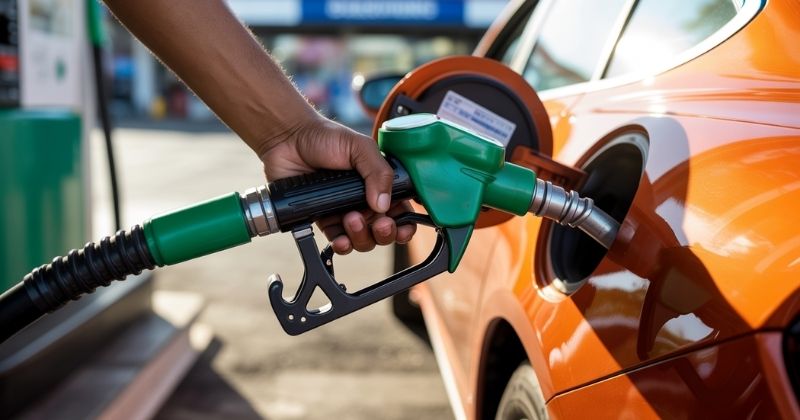
On Wednesday, 21 May, South Africa’s Finance Minister, Enoch Godongwana, presented the third revision of the 2025 National Budget Speech. This updated address introduced several crucial amendments across economic indicators, fiscal planning, and national revenue strategies. Key themes included the overall health of the economy, revised growth projections, updated borrowing requirements, and the decision to halt the controversial VAT hike. Alongside this, the continuation of the Social Relief of Distress (SRD) grant was confirmed, signalling ongoing support for low-income individuals.
Key Takeaways
- VAT Increase Dropped, but Tax Burden Remains: Although the proposed VAT hike was scrapped following political and public pressure, the Treasury will still raise R18 billion by keeping income tax brackets unchanged, resulting in inflation-driven bracket creep for taxpayers.
- Economic Growth and Debt Outlook Worsens: South Africa’s economic growth forecast has been revised down to 1.4% for 2025, while the country’s debt-to-GDP ratio is now expected to peak at 77.4%, signalling increased fiscal strain and heavier borrowing requirements.
- Fuel and Sin Taxes Rise as Spending Tightens: To recover lost revenue, fuel levies are increasing after a three-year freeze, and excise duties on alcohol and tobacco are rising above inflation. Simultaneously, R69.4 billion in spending cuts will impact key departments like Health, Education, and Home Affairs.
About Arcadia Finance
Finding the right loan is simple with Arcadia Finance! No application fees, just easy access to 19 trusted, NCR-compliant lenders in South Africa. We make the process smooth, safe, and suited to your financial needs.
VAT Increase Abandoned, but Fuel Taxes Adjusted to Offset the Gap
In response to substantial opposition from political alliance partners and the public, the proposed increase in Value-Added Tax was formally withdrawn. To help offset the resulting shortfall in revenue, the Minister confirmed that fuel levies would be increased in line with inflation. The decision reflects a broader balancing act by the National Treasury as it attempts to maintain fiscal stability while responding to public and political pressure. The move to scrap the VAT hike was seen as a victory for consumer advocates and labour groups, who argued that higher consumption taxes would disproportionately affect lower-income households already struggling with food and transport costs.
Economic Growth Revised Downward Amidst Global Uncertainty
Despite previous expectations of modest recovery, the South African economy is now forecast to grow at just 1.4% in 2025, a downward revision from the 1.8% growth figure presented in March. This lowered projection comes amid a complex international environment marked by trade tensions and rising policy uncertainty. These external factors continue to influence domestic economic performance, with lasting implications for fiscal planning. At the same time, sluggish domestic investment, persistent load-shedding, and policy ambiguity are compounding economic drag, with investor confidence showing little sign of robust recovery.
To truly grasp the impact of Budget 3.0, it helps to understand how government spending affects the country’s GDP. Our guide on what is GDP breaks it down simply and shows how economic indicators are influenced by policies like those in this budget.

Spending Cuts and Revenue Shortfalls Highlight Fiscal Pressures
The revised budget introduces R69.4 billion in expenditure reductions over the next three years, with departments such as Health, Education, and Home Affairs facing the most significant adjustments. State-owned enterprise Transnet is also subject to considerable budgetary contraction. These cuts largely compensate for the decision to cancel the VAT increase. However, even with these reductions, the Treasury anticipates a R62 billion shortfall in projected revenue over the same period, indicating tight fiscal conditions. These cuts raise questions about service delivery capacity in already overstretched departments, particularly in education and public hospitals, where staff shortages and deteriorating infrastructure are widely reported.
Debt-to-GDP Ratio and Borrowing Requirement Rise Further
The weaker economic outlook and limited revenue inflow have resulted in a further upward adjustment to South Africa’s debt burden. he debt-to-GDP ratio is now expected to peak at 77.4% in the fiscal year ending March 2025, an increase from the 76.2% projection made in March and the 75.5% estimate from October 2024. The amended budget outlines a projected borrowing need of R588 billion for 2025/26, marking a R6 billion rise from previous projections. This upward trend reflects growing reliance on borrowing to fund basic functions of government, with debt servicing costs now among the fastest-growing items in the national budget.
Bracket Creep Used to Generate Additional Revenue
Although the VAT hike has been removed from the fiscal strategy, the government will still raise tax revenues by R18 billion this year. This will be achieved by not adjusting personal income tax brackets for inflation, effectively subjecting more taxpayers to bracket creep. This measure impacts salaried workers most severely, especially those unable to repackage their remuneration structures. Treasury now expects to collect R15.5 billion through this method, slightly less than the R18 billion previously projected. The Minister has signalled that additional tax measures may be introduced in 2026, particularly if SARS does not succeed in improving tax compliance and administrative efficiency. This approach, sometimes described as a “stealth tax,” subtly erodes disposable income and could dampen household spending at a time when consumer confidence remains fragile.
One concerning trend is the growing dependence on credit to meet basic needs. Our deep dive into how South Africans rely on credit for living expenses offers crucial context to the budget’s provisions for social grants and economic support.

Fuel Levies Rise After Three-Year Freeze
As part of the revenue adjustment measures, inflation-aligned increases to fuel taxes will come into effect on 4 June 2025. The general fuel levy on petrol will rise by 16 cents per litre, while the diesel levy will increase by 15 cents. The Road Accident Fund levy will remain unchanged at R2.18 per litre, and the carbon fuel tax will maintain the previous increase of 3 cents per litre. The cumulative effect of these adjustments will raise the total fuel tax burden to R6.37 for petrol, representing 30% of the retail price, and R6.24 for diesel, comprising 33% of the total cost. Consumers can expect higher transport costs as a result, with knock-on effects likely to be felt in food prices, logistics operations, and commuter expenses.
Social Relief Grant Extended Amid Broader Welfare Budget Constraints
The SRD grant, which currently provides R370 per month to over 10 million recipients, will be extended until the end of March 2026, with R35.2 billion allocated for the coming year. While the R1.6 billion increase to social grants confirmed earlier in 2025 will remain in place, proposed increases beyond inflation for other welfare stipends have been shelved, saving R6.6 billion over the medium term. Government is reportedly considering integrating the SRD into broader employment-focused programmes, potentially introducing new mechanisms such as a job-seeker’s allowance under the Active Labour Market Programmes initiative. However, the absence of a permanent basic income grant continues to draw criticism from advocacy groups, who argue that long-term social protection is urgently required in a country grappling with high unemployment and inequality.
Sin Taxes Increased, While Sugar Tax Remains on Hold
The Treasury has maintained its plan to increase excise duties on products such as alcohol, tobacco, and vaping items. From 1 April 2025, alcoholic beverages, pipe tobacco, and cigars will face a 6.8% increase in excise duty, while cigarettes and vaping products will be taxed 4.8% more. Notably, the sugar tax (officially the Health Promotion Levy) will remain unchanged, with the inflationary increase originally scheduled for April cancelled. This decision is intended to provide the sugar industry with additional time to adjust to competitive pressures from regional trade. Public health advocates are likely to raise concerns over the freeze on sugar tax increases, especially amid rising obesity rates and growing pressure on the public healthcare system.
Conclusion
Budget 3.0 reflects a delicate balancing act between fiscal discipline and social demands in a politically charged environment. While the withdrawal of the VAT increase may offer short-term relief to consumers, rising fuel and income tax burdens will still affect household finances. Slower economic growth, rising debt levels, and significant expenditure cuts underscore the ongoing challenges facing the National Treasury. As South Africa navigates low growth and high unemployment, the success of this budget will ultimately depend on improved tax compliance, restrained spending, and meaningful structural reform
Fast, uncomplicated, and trustworthy loan comparisons
At Arcadia Finance, you can compare loan offers from multiple lenders with no obligation and free of charge. Get a clear overview of your options and choose the best deal for you.
Fill out our form today to easily compare interest rates from 19 banks and find the right loan for you.


